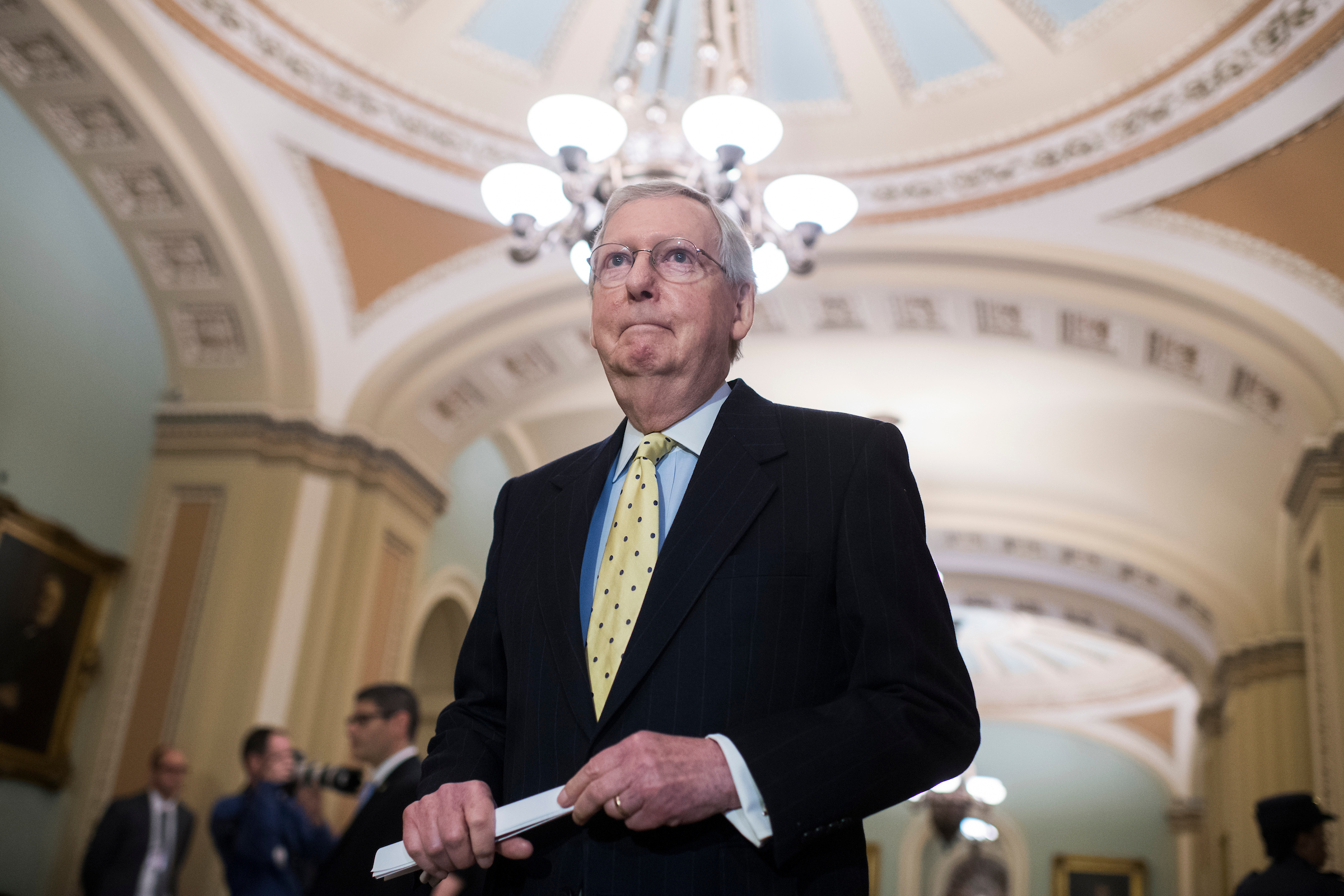Conservative Court Nominee Highlights Smoother Path to Bench
Previous political work no longer impedes confirmation chances

Updated 4:29 p.m. | Appeals court nominee Kyle Duncan has advocated on behalf of conservatives in legal fights over contentious cultural issues such as abortion and LGBT rights, leaving behind the kind of paper trail that might have dissuaded presidents from putting him through the Senate’s confirmation process.
Donald Trump is not such a president.
And changes to the Senate filibuster rules from five years ago meant Democrats alone didn’t have the votes to block Duncan from a seat on the U.S. Court of Appeals for the 5th Circuit based in New Orleans.
Duncan’s confirmation Tuesday afternoon on a mostly party-line 50-47 vote illustrates how the Senate rules change has made it easier for lawyers with a more ideological past to get lifetime appointments to the bench, and then preside over contentious disputes on abortion, civil rights and other issues where their past views are clear.
Under the Trump administration, conservative lawyers such as Duncan are not disqualified from a judicial nomination just because they worked on issues they are passionate about, said Carrie Severino, the chief counsel and policy director at the Judicial Crisis Network. The group has funded campaigns to support the confirmation of conservative judicial nominees.
“In the Bush administration, for example, would he have been nominated? I’m not so sure,” Severino said. “People would have said, ‘Oh, it’s a third rail issue, we don’t want to touch it. We don’t want someone who is on the record at all on some of these issues.’ ”
In recent years, Duncan was lead counsel in a Supreme Court challenge that struck down the contraceptive mandate in the 2010 health care law. He filed briefs at the high court to support a Texas law restricting abortion clinics and to oppose same-sex marriage.
He defended moves by North Carolina and a Virginia school board to define transgender bathroom use, as well as a North Carolina election law that was struck down as discriminatory against black voters.
“The Fifth Circuit is home to millions of African American citizens,” the Congressional Black Caucus wrote in a letter Monday to Senate Majority Leader Mitch McConnell. “Mr. Duncan’s appointment to a life-long position on this important body is an insult to black Americans nationwide.”
The last word
Civil rights groups say they are particularly troubled that Duncan will sit on the 5th Circuit, which often has the last word on legal cases from Texas, Louisiana and Mississippi. The courts in those states historically have been an “important firewall” to defend the civil rights of disfavored minorities and have become a battleground for LGBT rights, said Sharon McGowan, director of legal strategy for the civil rights group Lambda Legal.
Last year, for example, the 5th Circuit reinstated a Mississippi state law that prevents the state from taking action against people who act in accordance with their religious beliefs, including whether marriage should be recognized as the union of one man and one woman. A federal district judge had ruled the state law unconstitutional, in part because it went against the Supreme Court’s ruling in 2015 that legalized same-sex marriage.
Duncan is hardly the first lawyer with ideological work in his past to join the federal bench, on both ends of the political spectrum. Some of his legal positions have won the backing of the Supreme Court. And his positions on legal issues might not differ wildly from other conservative nominees.
McConnell, on the Senate floor Monday before Duncan cleared a procedural hurdle, said Duncan’s legal credentials, as well as his work in private practice that “earned the respect of his colleagues and peers,” show how “the president has made another outstanding choice.”
Duncan is just one of Trump’s judicial nominees that Democrats such as Sen. Sheldon Whitehouse have criticized as supporters of Republican policies, citing their prior legal work or views they expressed publicly.
Yet Democrats, since they are in the minority, can’t stop his confirmation without gaining Republican votes. The chamber’s filibuster rules were changed in 2013 so that only a simple majority could confirm nominees.
Democrats were in charge at that time, and Republicans warned the move would mean more ideological judges.
Watch: How to Change Senate Rules, Slowly, With the ‘Book of Spells’
‘Suspension of rationality′
At Duncan’s confirmation hearing in November, Democrats pressed him about his work for the Becket Fund for Religious Liberty and then in private practice, and whether parties who appear before him would believe he would treat them fairly.
“That’s what I’ve done for a good part of my career is make arguments for parties in litigation, but I recognize that there is a really fundamental difference between being a lawyer for a client, where you’re making arguments in the clients’ interest, or in the amicus’ interest, and being a judge,” he said.
His critics say they aren’t convinced.
“This guy has been the engine in the train,” Lambda Legal’s McGowan said, that went “through the rights of LGBT people, and the notion he would put all that aside and administer fair and impartial judges requires a suspension of rationality.”





